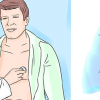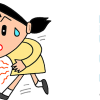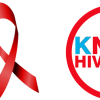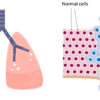Tag: blurry vision , endocrinology , excess urination , excessive hunger , excessive thirst , Frequent infections , high sugar , metabolic disorder , pancreas , poor penile erection , poor wound healing , tingling of hands and feet , tired , weight loss
-
Blurry Vision
Blurry vision is the loss of sharpness of vision that results in inability to see fine details. Blurry vision occurs when the function of the structure of eyes - lens, cornea, vitreous fluid, retina, optic ne
-
Difficulty swallowing (Dysphagia)
Dysphagia is the inability or difficulty in swallowing food or liquid. Normally, muscles in the throat (pharynx) and esophagus (food pipe) contract rhythmically to move food and liquids from mouth to stomach. Dysphagia occurs when there is a narrowing or lack of coordination of movem
-
Lung Cancer
Lung cancer (Bronchogenic carcinoma) is the most common type of cancer worldwide and a leading cause of cancer death for both men and women. Lung cancer occurs when the normal cells of lungs abnormally change their characteristics and grow uncontrollably. Lung cancers may be
-
Blood Cancer (Leukemia)
Introduction Blood cancer encompasses cancers that originate in the bone marrow (organ that produces blood cells). Most of the blood cancers involve white blood cells (cells that fight infection) and are called leukemia. Cancers can also develop in the red blood cells (cells that carry oxygen) and p
-
Tuberculosis
Tuberculosis (TB) is a communicable disease caused by Mycobacterium tuberculosis. It can affect any organ in the body but lungs (Pulmonary TB) are the most common site of infection. Other common sites of infection are bones, lymph nodes, kidneys, uterus, brain (meninges), skin, etc. Tuberculosis i
-
Weight Gain – Obesity
A person is said to be obese if s/he weighs much more for his or her height. An obese person is at risk of developing many health problems as s/he has excess body fat, which is undesirable. A special measure based on weight and height, called “body mass index,” or BMI is used to find out if a person is underweight,
-
Excess Urination
Excess urination can be frequent urination (with normal total urine output) or urinating abnormally large volume of urine (usually more than 3 liter/24 hours in adults) called polyuria. It is a common problem in men and women of all ages but more common in middle age or older indiv
-
Weight Loss
Weight loss that is meaningful clinically (in relation to your disease) is the loss of more than 5% of usual body weight over a six-month period. This arbitrary cut-off needs to be considered carefully as this does not tell about whether the given weight loss is due to loss of body fat (
-
Fatigue / Tiredness
Tiredness means you feel exhausted both during activity as well as rest,, even while sleeping as well. It is not a disease but could be a symptom of various physical and psychological ailments. It can alternatively be called as fatigue; exhaustion; lethargy or weariness. We all
-
Headache
Headache Headache is pain felt in any region of the head upto upper part of the neck . Brain itself is pain insensitive, but surrounding structures like coverings of brain, arteries and muscles are pain sensitive. Stimulation of these pain sensitive areas from inflammation and
-
Coughing up Blood
Coughing up blood can be alarming, even in small amounts. But not all hemoptysis is serious or life-threatening. The blood may be mixed with the sputum or it could be frank blood which could be bright red, dark brown or pink and frothy. When you cough up blood, most of the time it is c
-
HIV/AIDS
Introduction HIV (Human Immunodeficiency Virus) is the virus that causes AIDS (Acquired Immunodeficiency Syndrome). Infection by HIV weakens your immune system. When the immune system becomes too weak to fight, organisms that would otherwise not cause an infection in a normal person, that person is
-
Heart Attack
Heart attack is a leading cause of death in adults. The medical term for heart attack is myocardial infarction. Heart attack occurs when the blood flow to the heart is severely reduced or completely blocked. The heart muscle needs regular supply of blood and oxygen to survive.
-
Diabetes Mellitus
Diabetes Mellitus (commonly called diabetes) is a chronic disease where your blood sugar levels are persistently high. There is an important hormone called insulin in our body that keeps the blood glucose level within normal range. Insulin is produced by pancreas which is a gland located behind the stomach between the
-
Cataract
Cataract occurs when the lens of an eye becomes cloudy and affects vision. Almost half of the blindness worldwide is estimated to be caused by cataract. It is the major cause of blindness in developing countries. It is a gradual change in the structure of the lens in an eye. Hence, it usually manifests in older age
-
Cancer
Cancer is a disease of abnormal cell proliferation. In a healthy organs, cells divide and grow in a regulated and controlled fashion. When these cell start to divide and grow unpredictably and uncontrollably, it develops into a lump know as tumor. These groups of abnormal cell can infiltrate causing destruction of surr
-
Hyperuricemia
Blood uric acid level above normal range is called hyperuricemia. Uric acid is formed in the liver when body breaks down purines and is excreted by the kidneys. Purines come from diet and our body. Purine rich diets are red meat, organ meat (liver, kidney), seafood (sardines, anchovies), beer, dried beans and peas, spi
-
High Cholesterol
Cholesterol is a type of fat that circulates in the blood. Your body makes some amount of cholesterol and the rest comes from the food you eat, mainly the animal products (plants do not contain cholesterol). Some amount of cholesterol is needed to build healthy cells but having high levels of cholesterol can increase t



















